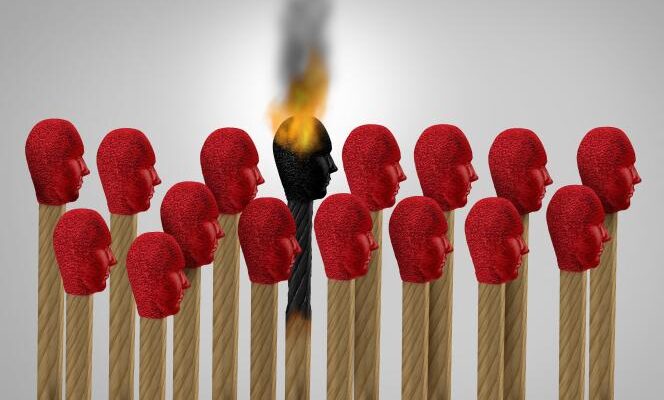“My colleagues don’t realize that for me coming to work is like walking into a room full of spiders. » In a striking comparison, this patient had discussed a few years ago with her therapist, the psychiatrist Patrick Légeron, the disorders of which she was a victim. Affected by social anxiety, she approached with pain the daily confrontation with other employees, the permanent fear of the gaze and the judgment of others.
A marginal phenomenon? Health professionals say otherwise. Social phobia, a serious form of social anxiety, is of course a minority, but would still affect 2% to 7% of the adult population in France, according to various studies. As for lighter manifestations, between stage fright and shyness, they are frequent and disrupt the daily lives of many employees, even influencing their career choices: “Fifty-eight percent of employees say they are apprehensive about taking on a leadership position for fear of having to speak in public”note the co-authors, including Mr. Légeron, of The New Fear of Others (Odile Jacob, 416 pages, 23.90 euros).
Over the years of his consultations, the psychiatrist has noted the diversity of the difficulties encountered by these suffering employees in the work collective. He remembers the anxieties of this executive, who was losing sleep several days before a public presentation. Or those of this leader, who systematically fled the moments of conviviality organized by her company. She preferred “explaining that she was not interested and coming off as a haughty person rather than appearing socially ill at ease”.
“False self”, a social mask
If they are multiple, the difficulties encountered have also tended to intensify in recent years. In question, mainly, the evolution of expectations in the company. The enhancement of behavioral skills or “soft skills” (adaptability, team spirit, etc.) has made the daily life of some employees more complex.
Such as this employee met by Mr. Légeron who had chosen a sector, IT, where he hoped to limit interactions. Alas, his company gradually wanted its employees to become more involved and actively participate in meetings. “He lived through this in absolute panic”notes the psychiatrist.
“Highlighting your soft skills is impossible for some employeesconfirms Philippe Zawieja, psychosociologist, associate researcher at the University of Paris-Cité. Some will still try to slip into the mold requested, by adopting a “false self”, a false self. » A heavy social mask to wear, “psychologically uncomfortable and very costly energetically”.
You have 57.1% of this article left to read. The following is for subscribers only.
